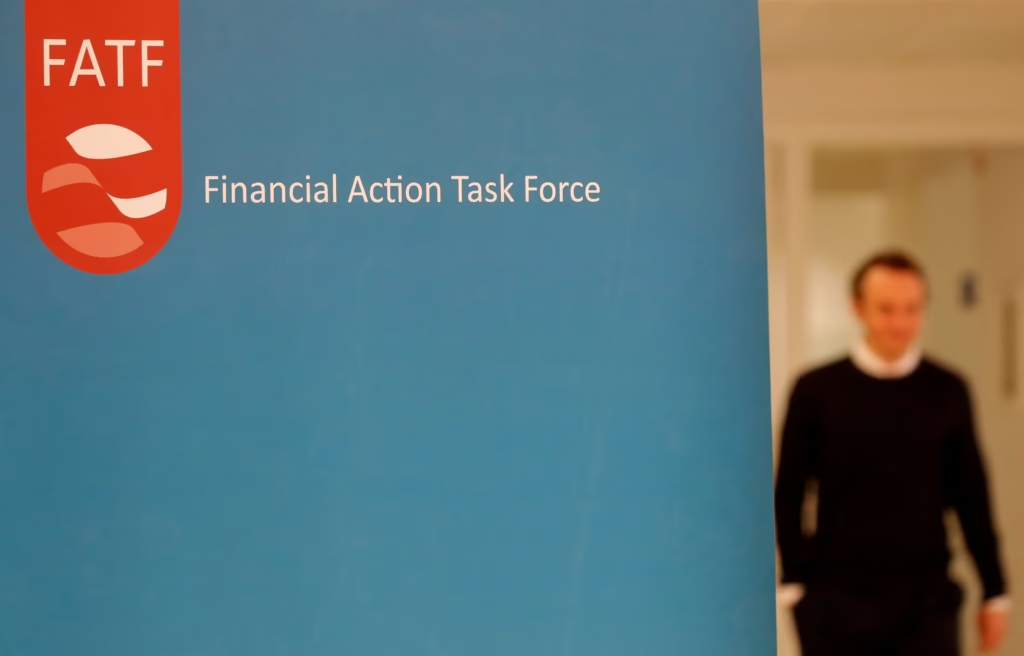FATF’s Call Against Shell Companies: The global financial crime watchdog, the Financial Action Task Force (FATF), has issued a sharp warning to countries over the risks posed by shell companies. FATF President Elisa de Anda Madrazo described them as the “getaway car” for criminals, enabling illicit actors to move money across borders undetected. Speaking in Paris, she stressed that shell companies will be a central focus in the next round of national assessments, with particular scrutiny on the effectiveness of beneficial ownership transparency systems.
The Paris-based FATF, an intergovernmental body responsible for setting global standards against money laundering and terrorist financing, reviews countries every six years. One of its key recommendations is that governments maintain accurate, complete, and up-to-date records of the beneficial owners — the real individuals behind legal entities. However, recent rollbacks by the United States and Switzerland on transparency rules have raised concerns about weakening the global fight against financial crime.
The FATF’s call comes at a time when illicit finance continues to thrive in loopholes across jurisdictions. A 2023 Moody’s study of 472 million registered companies worldwide revealed that nearly 20 million displayed characteristics of shell companies, with the United Kingdom raising the highest number of red flags. Against this backdrop, FATF’s insistence on stricter transparency rules signals growing urgency to tackle the abuse of corporate structures for money laundering, tax evasion, and terrorist financing.
FATF’s Focus on Shell Companies
FATF’s new round of assessments will zero in on whether countries are ensuring:
- Complete and accurate beneficial ownership data.
- Updated registers accessible to law enforcement authorities.
- Effective implementation, not just legislation on paper.
Shell companies often allow criminals to obscure their identities and move illicit funds without detection. FATF President Madrazo warned that weak transparency standards threaten to undermine the integrity of the global financial system.
Read about: San Miguel Seeks $1.5 Billion in Largest Philippine Loan of 2025
Countries Backtracking on Transparency
Recent moves by major economies have raised eyebrows:
- United States: In March 2025, the U.S. Treasury’s Financial Crimes Enforcement Network (FinCEN) stopped requiring domestic companies to disclose beneficial ownership information to the government, though foreign firms must still comply.
- Switzerland: In June 2025, Swiss lawmakers excluded foundations and associations from a national transparency register, despite earlier government warnings that such exclusions would weaken anti-money laundering efforts.
These rollbacks come even as FATF emphasizes international cooperation. Fragmentation, according to Madrazo, weakens global collaboration and makes it harder to combat increasingly sophisticated financial crimes.
Grey List, Black List, and Global Risks
FATF can penalize countries with weak frameworks by placing them on its grey list, which increases monitoring and damages investor confidence. Nations such as Monaco and the British Virgin Islands are currently under grey-list monitoring. The most severe designation, the black list, includes North Korea, Iran, and Myanmar — countries deemed high-risk for money laundering and terrorist financing.
Being listed can trigger capital flight, reduced foreign direct investment, and stricter banking restrictions, making compliance with FATF standards crucial for economies that rely on global capital flows.

Online Crime and Cryptocurrencies in FATF’s Spotlight
Beyond shell companies, FATF is also prioritizing emerging threats:
- Cybercrime: Online financial crime is evolving rapidly, forcing authorities into a “whack-a-mole” battle against constantly changing tactics.
- Virtual Assets: Cryptocurrencies remain a top concern as criminals increasingly use them for cross-border transactions beyond regulatory oversight. FATF continues to push for stricter implementation of the so-called “travel rule,” which requires crypto firms to share customer information on transactions.
Also read: Ian Callum Turns Aston Martin Vanquish Into a Shooting Brake—and It Looks Absolutely Stunning
Conclusion
The FATF’s renewed focus on shell companies is a wake-up call for governments worldwide. While legal entities play a legitimate role in business, their misuse as vehicles for illicit finance undermines both the financial system and global security. With trillions of dollars in dirty money estimated to move through shell structures annually, effective regulation is no longer optional — it is essential.
Rollbacks in transparency measures by advanced economies like the U.S. and Switzerland risk emboldening criminal networks. FATF’s warning underscores that even wealthy nations must lead by example if the fight against money laundering and terrorist financing is to be effective.
Countries that fail to comply risk being grey-listed, which could harm their reputations and deter foreign investment. For emerging economies in particular, robust beneficial ownership systems are not just about compliance but about safeguarding economic growth.
As financial crime evolves in the digital age, FATF’s agenda highlights the need for international cooperation, technological adaptation, and political will. The crackdown on shell companies, coupled with vigilance over online and crypto-based crimes, will determine how effectively the global system can protect itself against illicit financial flows in the years ahead.
FAQs on FATF’s Call Against Shell Companies
1. What is the Financial Action Task Force (FATF)?
The FATF is an intergovernmental watchdog based in Paris that sets global standards to combat money laundering, terrorist financing, and related threats. It conducts six-year assessments of member countries to ensure compliance with its recommendations.
2. Why are shell companies a concern?
Shell companies are often used to hide the identity of real owners and facilitate money laundering, tax evasion, and illegal financing. FATF describes them as the “getaway car” for criminals, allowing funds to move undetected across borders.
3. What changes have the U.S. and Switzerland made?
- The U.S. Treasury stopped requiring domestic firms to disclose beneficial ownership data in March 2025.
- Switzerland’s parliament excluded foundations and associations from a planned transparency register in June 2025.
Both moves weaken global efforts at transparency.
4. What happens if a country fails FATF standards?
Countries with weak frameworks can be placed on the grey list (increased monitoring) or black list (high-risk designation). This impacts investor confidence, increases scrutiny from international banks, and can restrict access to foreign capital.
5. How is FATF addressing crypto and online crime?
FATF is pushing for stronger implementation of regulations on virtual assets, including the “travel rule” for crypto transactions. It is also prioritizing action against cyber-enabled financial crime, which continues to evolve faster than traditional enforcement methods.
Would you like me to also prepare a short SEO headline + meta description (under 160 characters) for this article so it’s optimized for Google News?


